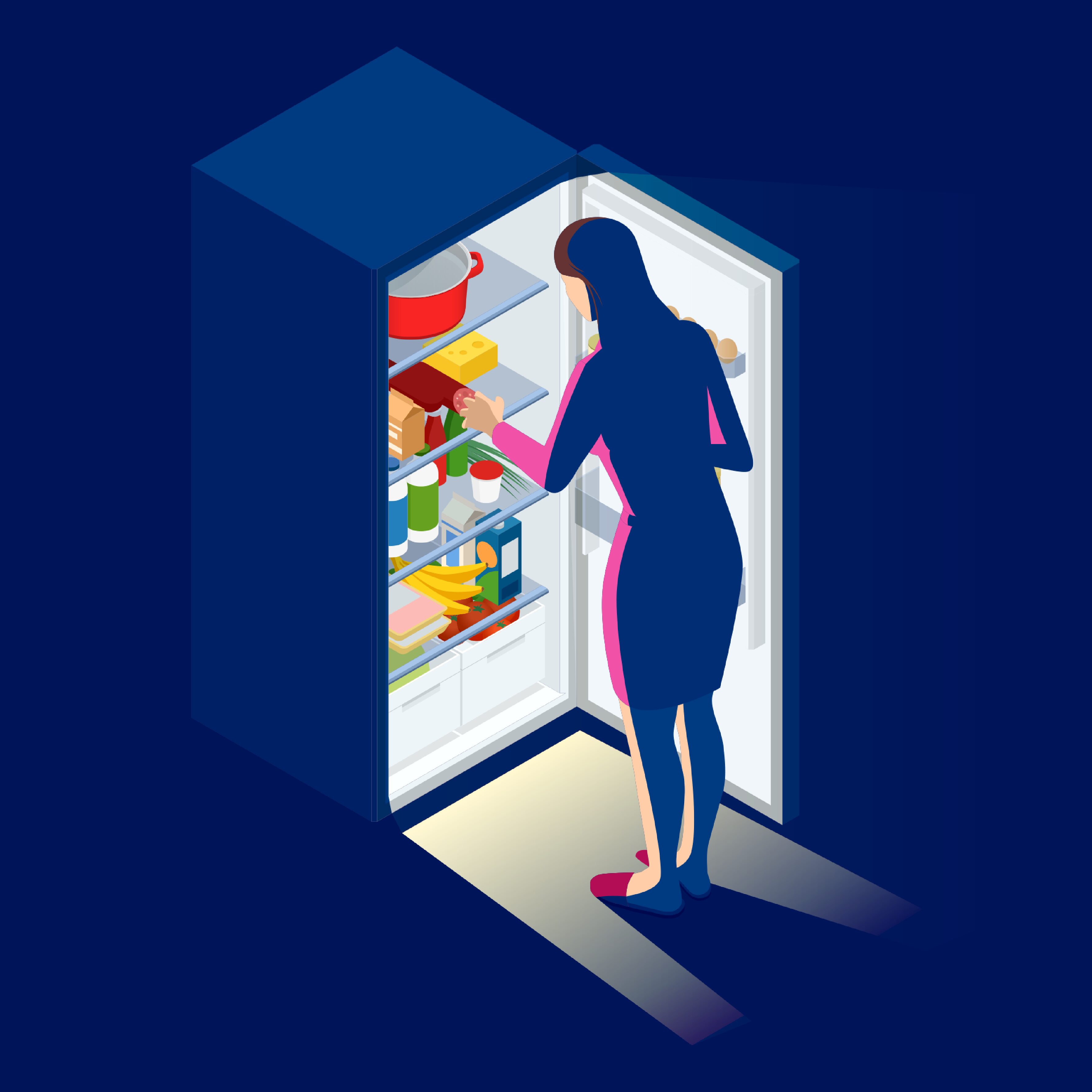
The type of food you eat is an essential factor in maintaining good health, and when you eat is also an important consideration.
Eating a meal at 10 am might have a different effect on your body than eating that same food at 10 pm.
Your Circadian Rhythm
Your body has an internal clock, known as the circadian rhythm, that helps to regulate many of its functions. This includes when you feel hungry and feel the need to sleep.
The circadian rhythm is influenced by light exposure. When it’s dark, your body produces more of the hormone melatonin, signaling your body to feel tired. When it’s light outside, your body produces less melatonin, making you feel more awake.
This daily cycle is also entangled with your eating patterns. If you eat lunch at the same time Monday through Friday, you’ll likely feel hungry at that same time on Saturday.
And if you eat late at night, this may keep you awake longer as your rhythm is tricked into thinking it’s still daytime. Making a habit of nighttime eating can significantly disrupt your sleep quality.
Risks of Late-Night Eating
In addition to ruining your sleep, eating late in the evening might also lead to weight gain. This night-snacking is typically not related to actual nutritional needs but rather psychological factors like cravings, boredom, or stress.
This then leads to eating more calories than you need, which can contribute to weight gain and obesity, especially when these nightly foods are rarely nutritious or healthful.
Late-night eating can make these symptoms worse for people who experience heartburn and acid reflux. Eating food forces your stomach to produce more acid to digest the food, and resting in a horizontal position makes it easy for these stomach acids to spill into your esophagus.
Narrowing Your Eating Window
While it’s common for people to start eating soon after waking up and continue eating throughout the day until going to bed, this may not leave enough time for the food to be properly digested. If the longest you go without eating is the 8 hours you spend sleeping, you may be putting extra stress on your digestive system.
Instead of eating all day long, start eating later in the morning and stop eating sooner in the evening. This creates a more extended not-eating window, which means your digestive system has more time to process the food you ate during the day entirely.
This also means you’ll likely spend more time in the ‘fat-burning stage’ of digestion instead of the ‘food-breakdown stage.’
By not eating late at night and narrowing your eating window, you can improve your sleep quality, reduce heartburn and acid reflux symptoms, and even help prevent and manage the development of chronic diseases.
It can be hard to break the habit of eating before bedtime, but your body and cravings will adjust to the new rhythm if you stick with it. Try drinking a glass of water or a cup of tea instead of snacking, and see if that helps ease your cravings.






















